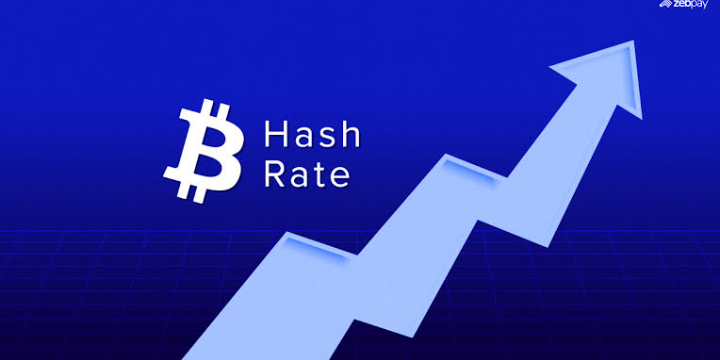Bitcoin’s Hashrate Reaches Record High as Price Nears $100K
The Bitcoin network has reached a significant milestone with its hashrate hitting 776 EH/s, a new record high. Coupled with Bitcoin’s price nearing $100K, these developments highlight the cryptocurrency’s growing adoption, security, and influence in the financial ecosystem. However, these advancements also bring challenges like energy consumption and regulatory scrutiny.
Bitcoin’s Hashrate and Market Trends
The growing hashrate reflects Bitcoin’s increasing demand and recognition among investors:
Institutional Adoption
More institutional investors are viewing Bitcoin as a reliable store of value, driving up its demand and price.
Regulatory Focus
Governments worldwide are paying closer attention to Bitcoin, with varying regulations affecting its adoption and acceptance.
Positive Market Sentiment
Bitcoin’s bullish momentum is encouraging confidence across the cryptocurrency market, with altcoins also benefiting from increased investor interest.
Energy Use and Environmental Impact
While a high hashrate secures the Bitcoin network, it also requires significant energy, raising sustainability concerns.
Energy Consumption Trends
Bitcoin’s energy use, estimated at over 100 terawatt-hours annually, is comparable to the energy consumption of small countries like Argentina or the Netherlands. This raises questions about the environmental impact of Bitcoin mining, particularly in regions dependent on fossil fuels.
Adoption of Renewable Energy
To mitigate environmental concerns, many miners are shifting to renewable energy sources:
- Hydropower: Popular in countries like Iceland and Canada, thanks to abundant water resources.
- Solar and Wind: Widely used in sunny and windy regions like Texas, promoting cost savings and sustainability.
Challenges with Carbon Emissions
Despite progress, many mining operations still rely on non-renewable sources. Initiatives like the Crypto Climate Accord aim to achieve net-zero carbon emissions by 2030, but substantial industry-wide efforts are needed to reach this goal.
Security Benefits of Bitcoin’s High Hashrate
The record-breaking hashrate reflects Bitcoin’s growth and enhances its network’s security and stability.
Defense Against 51% Attacks
A high hashrate makes it extremely difficult and expensive for any entity to control more than half of the network’s computational power, effectively safeguarding Bitcoin from malicious attacks like double-spending or transaction alterations.
Decentralization and Resilience
With mining power distributed among 59 mining groups, Bitcoin remains highly decentralized, minimizing the risk of centralization and ensuring the network’s trustworthiness.
Protection Against Emerging Threats
The community is proactively researching defenses against future challenges, including potential risks posed by quantum computing. Upgrades and a rising hashrate fortify Bitcoin against evolving threats.
Economic Incentives for Security
Higher Bitcoin prices incentivize more miners to join the network, further increasing the hashrate and enhancing security. Upcoming halving events, which reduce block rewards, could test these incentives, but past trends suggest price surges following halvings keep miners engaged.
Cheap Remote Crypto Mining for you – Click Here
Future Outlook
As Bitcoin evolves, balancing profitability, decentralization, energy use, and security will be critical for its long-term success.
Technological Advancements
Innovations in energy-efficient mining hardware and sustainable practices could reduce Bitcoin’s environmental impact. Utilizing renewable energy from unconventional sources, like oil extraction sites, presents new opportunities.
Role in Decentralized Finance
Bitcoin’s growth strengthens its position as the leading cryptocurrency and a cornerstone of the global financial system, with its influence expanding into decentralized finance (DeFi).
Conclusion
Bitcoin’s record-breaking hashrate and price nearing $100K underscore its rising importance in the global financial ecosystem. These milestones reflect its growing adoption and security but highlight challenges such as energy consumption and regulatory pressures. As Bitcoin continues to innovate and adapt, it is poised to shape the future of decentralized finance and digital assets.


